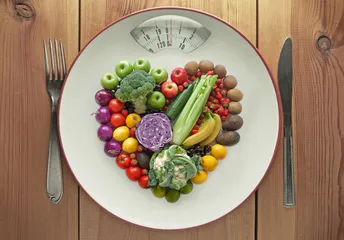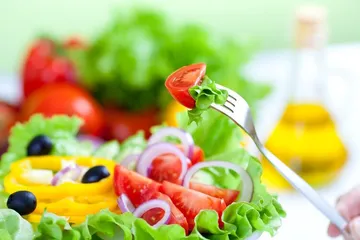Someone is using day lily to lose weight? Can we eat?
Can day lily lose weight?
Daylily is a very common vegetable that plays a certain role in weight loss. Because daylily has low calories and is rich in fiber, these characteristics are conducive to weight loss, so everyone can try to eat more daylily during weight loss.

Daylily is rich in lecithin, which is needed by many cells in the body to clear deposits in the body. Daylily's rich crude fiber can promote excretion of feces. Most importantly, day lily can improve the intestinal environment and stabilize the number of fat cells, which can help maintain body shape.
Daylily has high nutritional value. It is rich in pollen, sugar, protein, calcium, fat, carotene, amino acids and other nutrients necessary for the human body, as well as rich dietary fiber, multiple vitamins and minerals. The protein, fat, and carbohydrate content of dried day lily is 10 times higher than that of tomatoes and Chinese cabbage. The carbohydrate content and calories contained are similar to those of rice. Daylily has 10 times higher vitamin content and more than 3 times higher mineral content than cabbage.
How to eat day lily to lose weight
1.

of fried day lily with eggs
Fresh day lily is a good choice. It can be stir-fried with eggs. The specific method is to blanch the fresh day lily with boiling water, remove it to remove the water, then cut it into small pieces, and place it in a bowl., crack the eggs into the bowl. Add a small amount of edible salt and mix well, then put the oil in the pan. After heating, pour in the day lily egg liquid, stir fry quickly, take out and place on a plate after frying.
2. Cold day lily
Fresh day lily can be eaten cold and then eaten. Before making, first blanch the fresh day lily with boiling water, then take out the chilled water, cut some shredded cucumber and shredded carrot, put them together, add balsamic vinegar, soy sauce, and edible salt, chicken essence, sesame oil and other seasonings can be eaten after mixing well.
3. Stir fried vegetable day lily
Rinse the day lily, place it in a boiling water pot, blanch it, take out, and drain it; soak the mushrooms until soft and shredded; wash the carrots and shredded. Place the pan on fire, add the oil and heat it up, saute the shredded ginger until fragrant, add the shredded mushrooms and saute until fragrant. Add carrots and day lily, stir fry quickly over high heat, see the day lily is soft, add salt to taste, and then we can all add some sesame oil appropriately, so that the taste of the veg-fried day lily will be better. Of course, the veg-fried day lily is not only very delicious, but also has a very good therapeutic effect when eaten regularly.
Daylily's taboo for weight loss

1. Don't eat too much
Fresh day lily contains a kind of "colchicine" substance. Although it is non-toxic in itself, it is absorbed by the gastrointestinal tract and oxidized to "bis-colchicine" in the body, which is highly toxic. So when eating fresh food, don't eat too much each time.
2. Soak before eating
Since the toxic components of fresh day lily can weaken or disappear at a high temperature of 60 degrees, when eating, the fresh day lily should be blanched with boiling water, then soaked in clear water for more than 2 hours, taken out and washed with water, and then stir-fried. Eat, so that the colchicine can be destroyed, and fresh day lily is safe to eat.
3. Patients with gastrointestinal diseases should not eat it
Although day lily is peaceful in nature, it is not easy to digest. If people with gastrointestinal diseases do not eat it in moderation, it will cause physical discomfort.